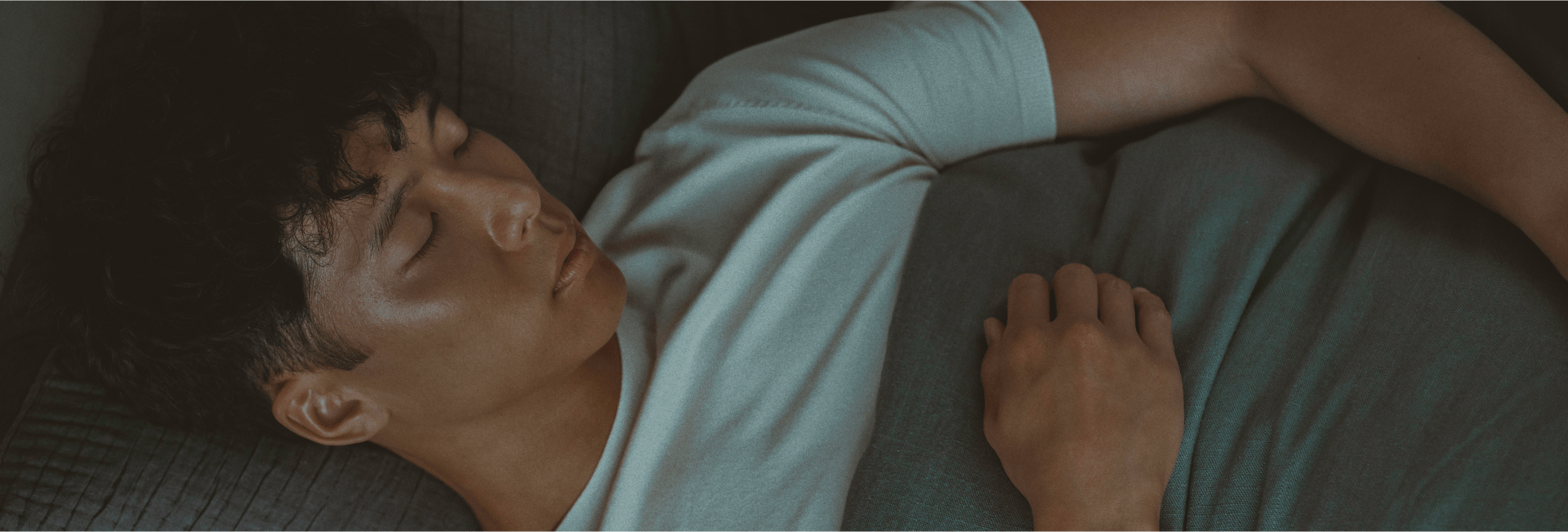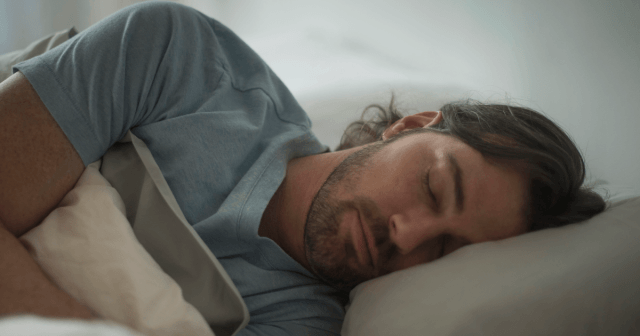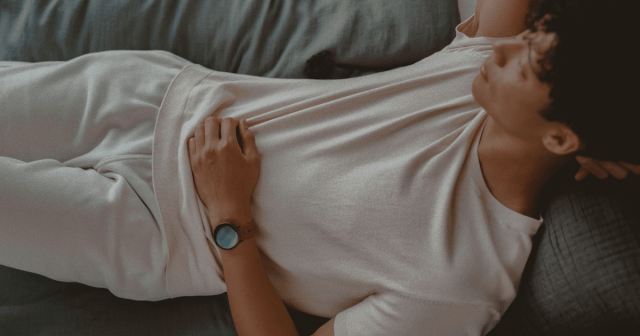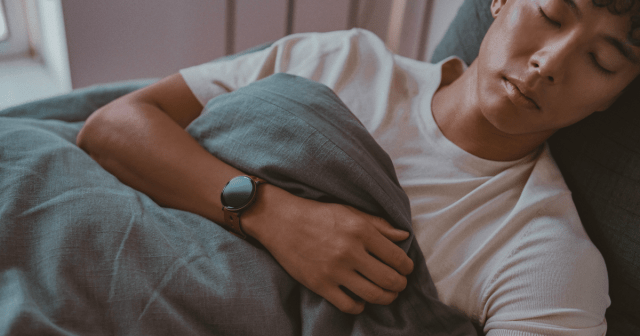Have you ever found yourself scrolling on your phone late at night, trying to understand why you can’t sleep? The answer could be staring you right in the face. Our exposure to different kinds of light significantly affects our circadian rhythms – but what are they? And what can cause a circadian rhythm sleep disorder? We shine a light on how your sleep habits influence your entire day.
Circadian rhythm definition
Circadian rhythms exist in most living things, from large animals to tiny microbes. If you’ve ever wondered how a plant knows to open its flowers with the sun each morning, this is their circadian rhythm. It’s a natural process primarily governed by light (and, in turn, darkness) but is all down to our internal clock.
In Latin, circadian means “around or approximately” (circa) “a day” (diem), which illustrates how these rhythms roughly follow a 24-hour cycle.
In Latin, circadian means “around or approximately” (circa) “a day” (diem), which illustrates how these rhythms roughly follow a 24-hour cycle. In humans, our circadian rhythms are the physical, mental, and behavioral changes that occur at different times of the day. They influence different processes, such as:
- Sleep-wake cycles.
- Hunger and digestion.
- Hormones.
- Body temperature.
When people talk about their circadian rhythms, they are usually referring to their sleep and any disruptions they may experience to their rest and recovery. But in turn, this has a big impact on their alertness and energy levels throughout the day.
It’s important to understand how your 24-hour cycle flows so you understand your individual rhythm. Whether it’s being able to focus on work, feeling great going for a run, or knowing when is the best time to wind down, understanding your circadian clock will help you get the most out of every day.
What regulates your circadian rhythms?
Nearly every tissue and organ in your body contain a biological clock, which regulates your daily cycle of circadian rhythms. These clocks are, in fact, molecules made of protein that can communicate with the cells in your body.
Nearly every tissue and organ in your body contain a biological clock, which regulates your daily cycle of circadian rhythms
A master circadian clock in your brain keeps all of these biological clocks in sync. It is called your suprachiasmatic nucleus (SCN), which consists of 20,000 nerve cells in your hypothalamus, the brain’s control center.
Your SCN receives direct input from your eyes, which relay information via the optic nerve about the light in your environment. This data then informs your SCN’s production of melatonin, the hormone that makes you sleepy. So, when it’s night, or you are immersed in a dark environment, your SCN tells your brain to create more melatonin to make you drowsy. If you’ve ever had a nap in a cinema, it was probably because of your SCN.
Circadian rhythm sleep disorders
A circadian rhythm sleep disorder occurs when your sleep-wake cycle is out of sync with your environment. This inconsistency could result in one of the following disruptions:
- You struggle to fall asleep at night.
- You frequently wake up during the night.
- You wake up during the night and can’t go back to sleep.
Circadian rhythm sleep disorder symptoms
When the above disruptions occur with your sleep, it could impact your daily life. Here are some of the key symptoms of circadian rhythm sleep disorders:
- Extreme drowsiness or exhaustion during the day.
- Lack of energy and alertness.
- Difficulty concentrating.
- Impaired judgment and risky decision-making.
- Feeling moody or emotional.
- Experiencing aches or pains, such as headaches.
- Sleepiness during shift work.
- Digestive issues due to jet lag.
Common Circadian rhythm sleep disorders
Most people will experience a Circadian rhythm sleep disorder at some point. Here are the common types:
- Jet lag: flying across multiple time zones has an understandable effect on your circadian rhythms. This sleep-wake cycle disruption will make it difficult to adjust to your new time zone for anywhere between a few days to a few weeks and affect your sleep, moods, and digestive functions.
- Shift work: working at night or frequently altering the timing of your shifts can easily disrupt your sleep-wake cycle. Not having a regular sleep time or one that doesn’t fit with your environment (i.e., going to bed when the sun comes up) can significantly affect your physical and mental health, in addition to symptoms like tiredness and mood swings.
- Delayed Sleep Phase Disorder: this is an extreme version of an ‘owl’ chronotype and is most commonly seen in teenagers and young adults. It occurs when you often can’t fall asleep until early in the morning but then sleep for 10+ hours, for example sleeping from 3am till 3pm.
- Advanced Sleep Phase Disorder: this is an extreme version of a ‘lark’ chronotype and is most commonly seen in older adults. It occurs when you often fall asleep early in the evening but then wake up too early in the morning, for example sleeping from 6pm till 2am.
How to fix your circadian rhythms
Your exposure to light has a significant influence on your circadian clock. It tells your body when to go to sleep and when you should wake up. So, if you’re struggling to sleep, consider when and how you are exposing yourself to different types of light.
It’s also about having a lifestyle that matches your circadian clock. If you’re constantly pushing yourself to stay up later than feels natural, then this will have an enormous impact on how your next 24 hours flow. A great way to enhance your sleep schedule is to actually start when you wake up each day. Making sure you are surrounded by bright light as soon as you wake will help you feel more alert and ready for the day and then help you have better sleep at night.
Polar IGNITE 3: FIND YOUR RHYTHM
Explore the all-new Polar Ignite 3, a beautiful fitness and wellness watch that is equipped with fully automated holistic sleep and daily activity tracking to help you live your life in tune with your body’s natural rhythm.
If you have trouble falling and staying asleep
- Make sure you aren’t exposed to any bright lights two hours before bedtime. Dim your surroundings by using lamps instead of overhead lights.
- Use ‘night mode’ on any device (smartphone, laptop, etc.) two hours before bedtime to filter out any blue light, which can make you feel alert. Don’t look at your devices for at least 30 minutes before you go to sleep to help your mind relax.
- Check that no lights will disrupt your sleep at night (inside and outside your bedroom). If you get up during the night, make sure you don’t switch on any bright lights.
If you have trouble waking up and staying awake
- If there are no bright lights outside our bedroom window, consider leaving your curtains open so you can wake up to natural light.
- Alternatively, try a sunrise-style alarm clock, which uses light to rouse you from sleep.
- Either way, ensure you are exposed to bright light shortly after you wake up to help you feel more alert.
- If you get sleepy during the day (up to two hours before bedtime), make your environment brighter to help you feel more alert.
The color of light can have a significant impact on your circadian rhythms
- White light: this is the best light to use during the day as it will boost your alertness and potentially enhance your mood.
- Blue light: white light contains blue light, which can be too stimulating for the brain during the evenings and at night. Make sure you filter out light like this by switching your devices to ‘night mode.’
- Yellow and orange light: has only a minor effect on your brain, so you can use it during the evenings as long as it is dim.
- Red light: has little to no effect on your brain, so it’s ok to use at night.
Seeking medical help
If you regularly have issues with your sleep and are experiencing some of the above symptoms, you should speak to your doctor about whether you have a circadian rhythm sleep disorder. They may ask you about the following:
- Your sleeping patterns
- Which symptoms you have experienced.
- Your exposure to light at night.
- Your use of caffeine, alcohol, and other substances.
- Your physical health, including pregnancy and menopause.
- Your family medical history.
It’s a good idea to think about all of these factors before meeting with your doctor and perhaps keep a sleep diary to track what you have been experiencing.
So, now you know about your circadian rhythms, you’ll hopefully be more aware of light and how your exposure to it affects your rest and recovery.
Sources
- National Institute of General Medical Sciences, Circadian Rhythms, 2022
- Centre for Disease Prevention and Control, The National Institute for Occupational Safety and Health, Circadian Rhythms and Circadian Clock, 2020
- National Heart Lung and Blood Institute, What Are Circadian Rhythm Disorders?, 2022
If you liked this post, don’t forget to share so that others can find it, too.
Or give it a thumbs up!
I like this article
Please note that the information provided in the Polar Blog articles cannot replace individual advice from health professionals. Please consult your physician before starting a new fitness program.





